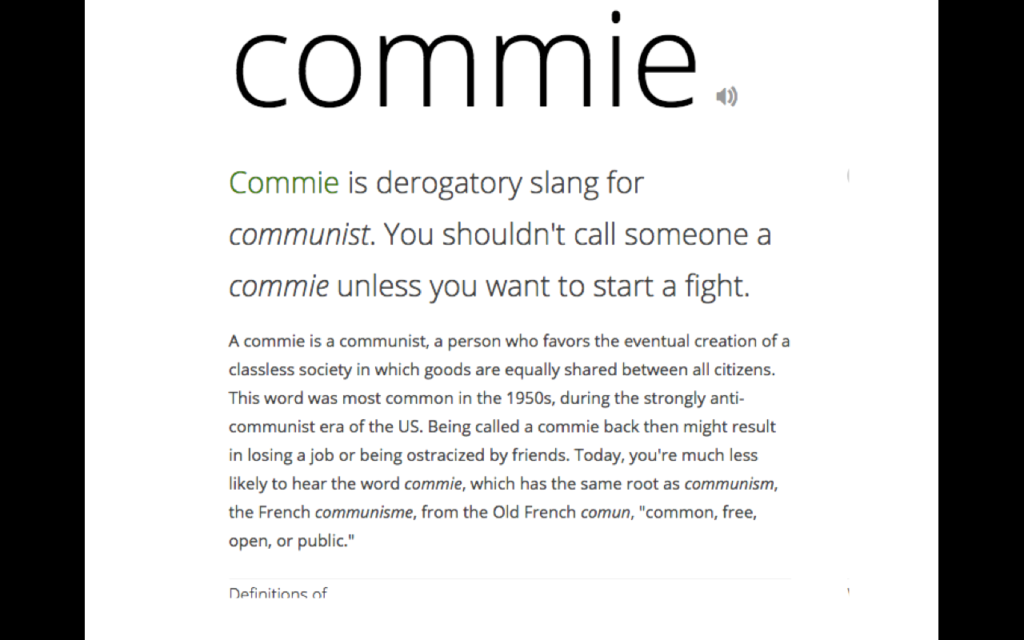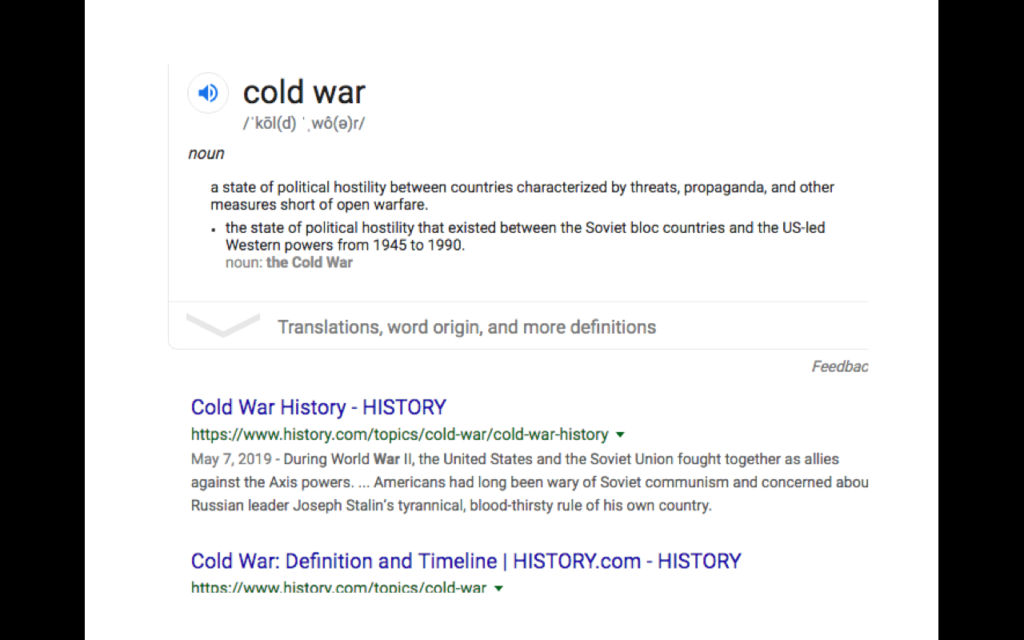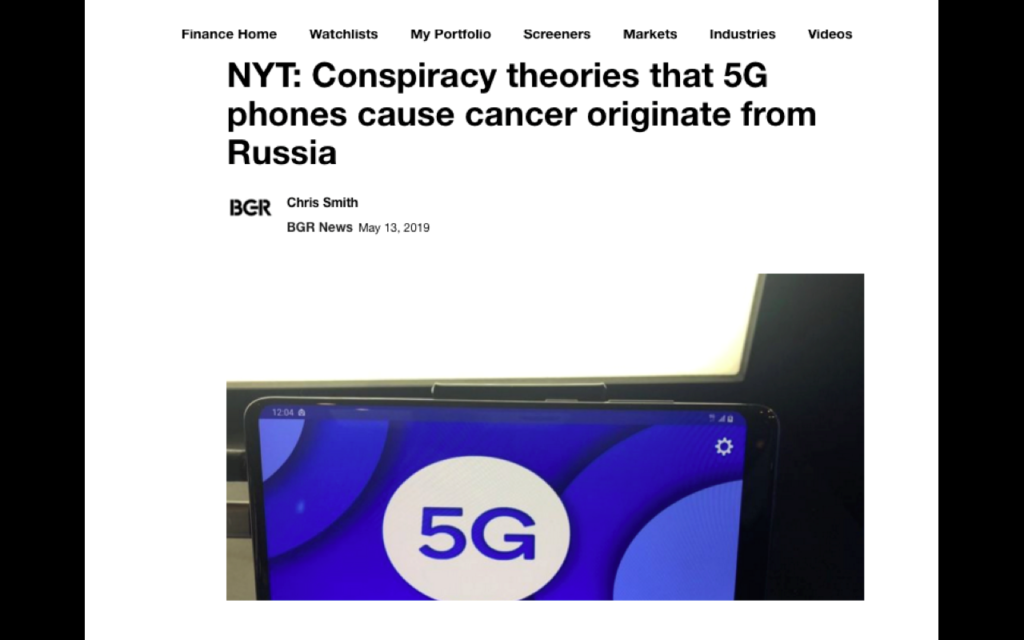It’s that time of the year when we recognize environmental sensitivities, and the New York Times and the Wall Street Journal took a different approach – ridicule, and a story about Russian interference in the U.S. economy.
May 12 has been observed as a day of recognition for environmentally illness, with various states recognizing the date, week, or month to raise awareness about Multiple Chemical Sensitivity and other chronic health conditions.
May 12th has been designated as International Awareness Day for Chronic Immunological and Neurological Diseases (CIND) since 1992. The CIND illnesses include Myalgic Encephalomyelitis (ME), Chronic Fatigue Syndrome (CFS), Fibromyalgia (FM), Gulf War Syndrome (GWS) and Multiple Chemical Sensitivity (MCS). May 12th was chosen, as it is the birthday of Florence Nightingale. She was believed to have suffered from ME/CFS Every year a number of events are held to mark May 12th. They will either be held on May 12th or sometime during the month of MaySource: https://www.may12th.org/
Experts in the field of Environmental Medicine practicing in many countries are also treating patients for intolerance to microwave radiofrequencies powering wireless telecommunications, also referred to as Electromagnetic Hypersensitivity (EHS),[1],[2],[3]
In a remarkable coincidence, on May 12, the New York Times published an article promoting the idea that Russians are behind the criticism of the planned rollout for the 5G fifth generation telecommunication networks, by fueling fear of adverse health impacts. [4]
Commie” was a derogatory term in the 1950s during the Cold War and the New York Times has implied that those vulnerable citizens attempting to protect their health either don’t even exist, or are part of a foreign propaganda campaign.
Other news outlets took it even further. The New York Times report was featured by Yahoo Finance:
NYT: Conspiracy theories that 5G phones cause cancer originate from RussiaAfter so many years of talking about the miracle that 5G will be for everything tech-related, it finally happened: 5G is here. “Here” is Korea, the US, and Switzerland, for the time being, although more and more countries will be getting 5G coverage in the coming months.What that means is that you’ll need new, more expensive phones to get on 5G, and pay a little extra on your monthly cellular bill. But it doesn’t mean that 5G will give you or your children cancer, or hurt anyone’s health in any other way. If you’ve heard any of that lately, it’s all a conspiracy theory originating from Russia in an attempt to reduce the gap when it comes to 5G deployment.[…]Scientists, The Times explains, dispute these claims, saying that 5G emissions will be even safer than previous generations, because the higher radio frequencies, which make higher data transfer speeds possible, can’t penetrate the skin as easily as low-frequency radio waves.While inseminating 5G discord in western countries, Russia has a different approach internally. President Vladimir Putin has recently said: “The challenge for the upcoming years is to organize universal access to high-speed internet, to start operation of the fifth-generation communication systems.”Moreover, just as RT America increased its anti-5G coverage, scientists in Russia have recommended high-frequency waves similar to 5G for health treatments, including healing wounds, boosting immunity, and treating cancer. Russia’s apparently looking to catch up to its rivals when it comes to 5G deployment, and one way of doing it is to give potential 5G customers in western countries reasons to avoid adopting the new technology.
The Wall Street Journal also published a follow-up article to the New York Times piece. “Russia and the 5G Cancer Scare, America’s cell-phone industry couldn’t be happier about the Kremlin’s meddling.”
There is an actual connection to Russia; the articles highlight RT Russia Today’s reporting of health concerns regarding 5G.
But truth be told, the New York Times, among others, has joined the chorus of ridicule and dismissal of a health-marginalized population and their advocates.
In a November 18, 2013 filing with the FCC, the cities of Boston and Philadelphia in their joint submission accused the FCC and Federal health agencies of negligence for failing to investigate whether electrosensitive persons are harmed by non-ionizing radiation:“The FCC admits its own lack of expertise in the field. But the overlap of federal agency responsibilities for RF radiation protection and the merely advisory status of the Radiofrequency Interagency Work Group often leaves leadership unclear and encourages a pass-the-buck attitude …
Respected cybersecurity expert Bruce Scheier recently wrote an article for Lawfare about disinformation campaigns.
Toward an Information Operations Kill Chain
[I]t’s time to conceptualize the “information operations kill chain.” Information attacks against democracies, whether they’re attempts to polarize political processes or to increase mistrust in social institutions, also involve a series of steps. And enumerating those steps will clarify possibilities for defense.I first heard of this concept from Anthony Soules, a former National Security Agency (NSA) employee who now leads cybersecurity strategy for Amgen. He used the steps from the 1980s Russian “Operation Infektion,” designed to spread the rumor that the U.S. created the HIV virus as part of a weapons research program. A 2018 New York Times opinion video series on the operation described the Russian disinformation playbook in a series of seven “commandments,” or steps. The information landscape has changed since 1980, and information operations have changed as well. I have updated, and added to, those steps to bring them into the present day:
Step 1: Find the cracks in the fabric of society — the social, demographic, economic and ethnic divisions.
Step 2: Seed distortion by creating alternative narratives. In the 1980s, this was a single “big lie,” but today it is more about many contradictory alternative truths — a “firehose of falsehood” — that distorts the political debate.
Step 3: Wrap those narratives around kernels of truth. A core of fact helps the falsities spread.
Step 4: (This step is new.) Build audiences, either by directly controlling a platform (like RT) or by cultivating relationships with people who will be receptive to those narratives.
Step 5: Conceal your hand; make it seem as if the stories came from somewhere else.
Step 6: Cultivate “useful idiots” who believe and amplify the narratives. Encourage them to take positions even more extreme than they would otherwise.
Step 7: Deny involvement, even if the truth is obvious.
Step 8: Play the long game. Strive for long-term impact over immediate impact.
SO, no, the New York Times didn’t’ EXACTLY call the EHS population communists. They didn’t need to; the group is already the most marginalized population in the mass culture.
But it’s a treacherous time for identifying the “useful idiots.”
And, if we believe that the Russians are behind Americans’ opposition to GMOs, it’s a treacherous time for keeping track of what constitutes a threat to democracy.
And, if you’d like to check up on the scientists that the New York Times hyperlinks to, who state that 5G should be safer than previous generations’ emissions, you’ll be sure to enjoy Cornell’s Environmental Health and Safety RF and Microwave Safety Program guide. [5]
Opponents of 5G claim the technology’s high frequencies will make the new phones and cell towers extraordinarily harmful. “The higher the frequency, the more dangerous it is to living organisms,” a RT reporter told viewers recently.The truth is exactly the opposite, scientists say. The higher the radio frequency, the less it penetrates human skin, lowering exposure of the body’s internal organs, including the brain.“5G emissions, if anything, should be safer than previous generations,” said Dr. Marvin C. Ziskin, a medical doctor and emeritus professor of radiology and medical physics at the Temple University School of Medicine.
HINT: Cornell’s guide is not research, and its not even science.
Learn More about Chemical Sensitivity:
- Hoffman TILT Program at UT Health Science Center San Antonio, Department of Family and Community Medicine: https://tiltresearch.org/ [TILT: Toxicant-Induced Loss Of Tolerance;] Toxicant‐Induced Loss of Tolerance (TILT) is a two-stage disease process initiated by a major exposure, or a series of low-level exposures. Affected individuals experience symptoms triggered by everyday chemicals, foods, and drugs that did not bother them previously.
- Dr. Claudia Miller’s http://new.drclaudiamiller.com 32-page booklet, “TILT – A New Class of Diseases: How Exposures to Chemicals are Undermining Our Mental and Physical Health,” which describes chemical intolerance, Toxicant-induced Loss of Tolerance, and the dangers of certain chemicals in the environment.
- Chemical Sensitivity Foundation: http://www.chemicalsensitivityfoundation.org/
Notes:
[1] http://www.ehs-mcs.org/en/
[2] https://electromagnetichealth.org/electromagnetic-health-blog/dominique-belpomme/
[3] https://magdahavas.com/austrian-medical-association-guidelines-to-diagnosing-and-treating-patients-with-electrohypersensitivity/
[4] https://www.nytimes.com/2019/05/12/science/5g-phone-safety-health-russia.html?action=
[5] https://sp.ehs.cornell.edu/lab-research-safety/radiation/rf-microwaves/Documents/RF_microwave_safety_program.pdf
[2] https://electromagnetichealth.org/electromagnetic-health-blog/dominique-belpomme/
[3] https://magdahavas.com/austrian-medical-association-guidelines-to-diagnosing-and-treating-patients-with-electrohypersensitivity/
[4] https://www.nytimes.com/2019/05/12/science/5g-phone-safety-health-russia.html?action=
[5] https://sp.ehs.cornell.edu/lab-research-safety/radiation/rf-microwaves/Documents/RF_microwave_safety_program.pdf



No comments:
Post a Comment